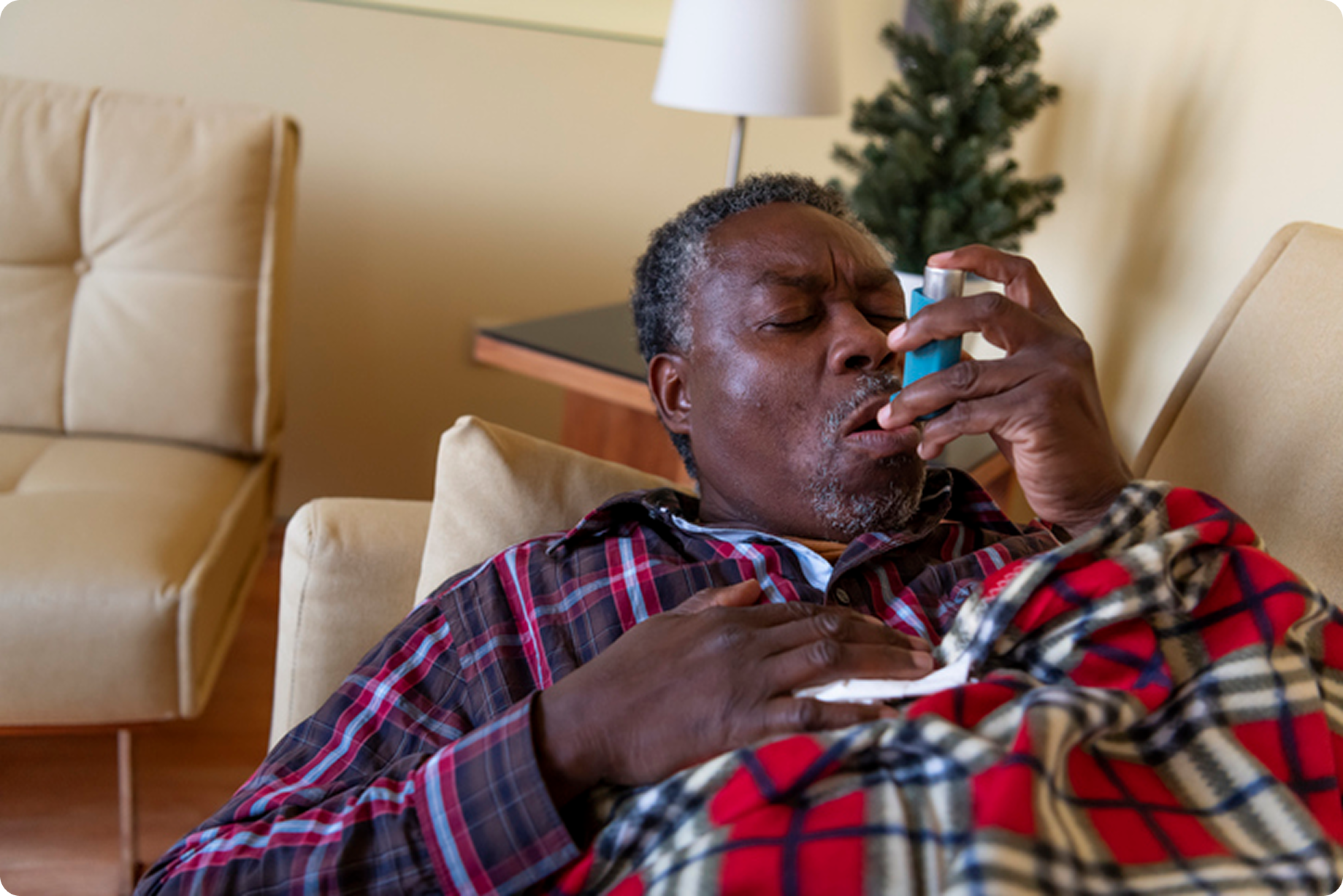What Aggravates COPD Symptoms?
COPD is a lung disease that obstructs airflow and makes it hard to breathe. If you are coping with COPD, then you already know that. But did you know that it is progressive and gets worse over time? It’s hard to cope with not being able to breathe well. You can’t just decide not to panic, or not to have an anxiety attack. Unfortunately, that stress is also a trigger to making it worse. One of the best things you can do is to understand COPD and what may aggravate the symptoms. Here are some common triggers that frequently aggravate COPD symptoms:
Infections: Viral and bacterial respiratory infections can trigger exacerbations of COPD. Common respiratory infections include the flu, COVID, RSV and pneumonia.
Weather Changes: This time of year cold air can aggravate COPD. Cold, dry air can irritate the airways and make it harder to breathe.
Smoking: The primary cause of COPD is smoking cigarettes. Continuing to smoke is the biggest thing you can do to aggravate COPD and make it progress quicker.
Indoor Irritants: Indoor irritants like fumes from cleaning products, and mold can aggravate COPD. Avoid these and make sure you have good ventilation if you are coping with COPD.
Taking Medications Incorrectly: Create a system to make sure your loved one gets the right dosages on the right schedule. Taking medications improperly is not following your treatment plan, and that can make symptoms worse.
Poor Inhaler Technique: Inhalers are as important as any other medications. Can your loved one press the inhaler and coordinate inhaling it properly? Or is the medication just hitting the back of their throat? Many inhalants may be available for a nebulizer so they can just relax and breathe, ask your doctor.
Comorbidities: Other conditions, like heart failure or asthma can complicate COPD. Consider the big picture and discuss your concerns with your doctor.
Occupational Exposures: People working in certain industries, such as construction or manufacturing, may find COPD triggers at work. Workplace exposure to dust, chemicals, or fumes may aggravate COPD.
Low Physical Activity: Inactivity and a sedentary lifestyle can weaken respiratory muscles and reduce lung function. Regular exercise is important for maintaining lung health in individuals with COPD.
Gastroesophageal Reflux Disease (GERD): GERD is a more serious form of acid reflux. It’s a condition where stomach acid flows back into the esophagus to potentially aggravate COPD symptoms. It is possible for stomach acid to reach the lungs, leading to irritation and exacerbation of respiratory symptoms.
Air Pollution: Exposure to air pollutants like dust, smog or exhaust fumes can aggravate COPD symptoms. That includes indoor fumes and smoke from cleaning products, cooking and heating.
Managing COPD well will involve a combination of lifestyle changes, medication, and sometimes supplemental oxygen therapy. Those with COPD should work closely with their healthcare professionals to create a comprehensive management plan tailored to their specific needs and triggers.
Ascend Hospice is experienced in managing COPD and will work with your physicians to create a care plan customized to your specific needs in your specific living environment. Our highly skilled team of caregivers includes both nurses and physicians trained to manage and treat COPD. Controlling symptoms, stress and anxiety will be effective in caring for a loved one coping with COPD. To learn how Ascend can improve quality of life, simply click here for peace of mind.
